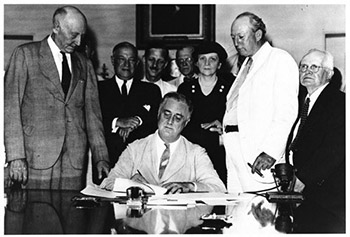Usually health care coverage through an HMO costs less than comparable traditional health insurance. So, how do these savings effect you?
What Is an HMO?
An HMO, or Health Maintenance Organization, is a health care payment service that provides a kind of managed health care plan employers can offer their employees. HMOs are sort of middle-men organizations designed to reduce health care costs, while taking a significant percentage of every transaction for their services. Though one could argue that the cost of the HMO outweighs the savings they provide, on average, health care coverage through an HMO costs less than comparable traditional health insurance.
How Do HMOs Reduce Health Care Costs?
Savings are accomplished by exclusive contracts, a very large membership base, and limitations on the range of treatments available.
Each HMO contracts with specific doctors, hospitals, and other health care providers. By agreeing to exclusive arrangements with health care providers, the HMO is able to negotiate for lower prices.
HMOs also deal with very large quantities of employers and individual members. By bringing a large amount of individuals to exclusively contracted health care providers, HMOs are able to negotiate for lower health care costs.
Another way HMOs keep health care costs down is by limiting the kinds of treatments their contracted health care providers can provide. Some treatments are eliminated, while focusing on preventative and long-term care for their members. Higher-priced plans can cover more services, cover a larger portion of the costs, and possibly reduce your deductables and other out-of-pocket expenses.
What Happens When I Join an HMO?
When you join an HMO, you are agreeing to a specific group of health care providers. From this group, you will choose a primary care physician. This doctor is a kind of representative of the HMO, and determines what treatments you do nad do not need. This primary care physician coordinates all of your health care needs. You must rely on this doctor for all of your needs. If the primary care physician determines that you have a medical need that he or she cannot treat, then that physician will manage your referral to a specialist.
There are two exceptions to first going to your primary care physician for visits and referrals. If you have a medical emergency you do not need to go to your primary care physician first. And in many cases, women are able to choose an OB/GYN.
What Are Other Benefits of Joining an HMO?
Though every HMO is unique and the various insurance plans they all offer are different, they all share some some generally common traits.
- Lower out-of-pocket expenses.
- No deductibles or plan limits.
- Low cost doctor office visit co-pays of usually $5 to $15.
- Usually no or very low hospital deductibles.
- No paperwork or claim forms.
- Pre-existing conditions may be covered.
- More comprehensive coverage.
- You are covered for out-of-state emergencies.
Related Articles
- Do You Need Long Term Care Insurance?
- Affordable health insurance: How to save on your health-care costs
- Purchasing Individual Health Insurance: What you need to know
- PPO Insurance
- Prescription Insurance
- Medicare Prescription Drug Coverage
- Medigap Supplemental Insurance Explained
- Supplemental Insurance - What Is It?
- Medical Marijuana - Should Marijuana Be a Medical Option?
- Prescription Drugs - Should They Be Advertised to Consumers?
 Print
Print Email
Email








